A quick scan of news headlines on any given day looks grim at first glance. But sometimes they reveal opportunities for your organization to be proactive in strengthening your business continuity plan.
So let’s get real for a second. If an emergency health or safety-related crisis were to occur in your building or workplace, would you be ready for it?
The current state of affairs
Today, landlords, facility managers, and other heads-of-properties are often faced with external, unexpected events that present new obstacles in crisis prevention and management. These events can include everything from natural disasters, to global health scares and food manufacturing contamination.
Luckily, we live in an era where technology can help us suit up for the unexpected. Crises can be properly handled or even averted completely, right from the front desk.
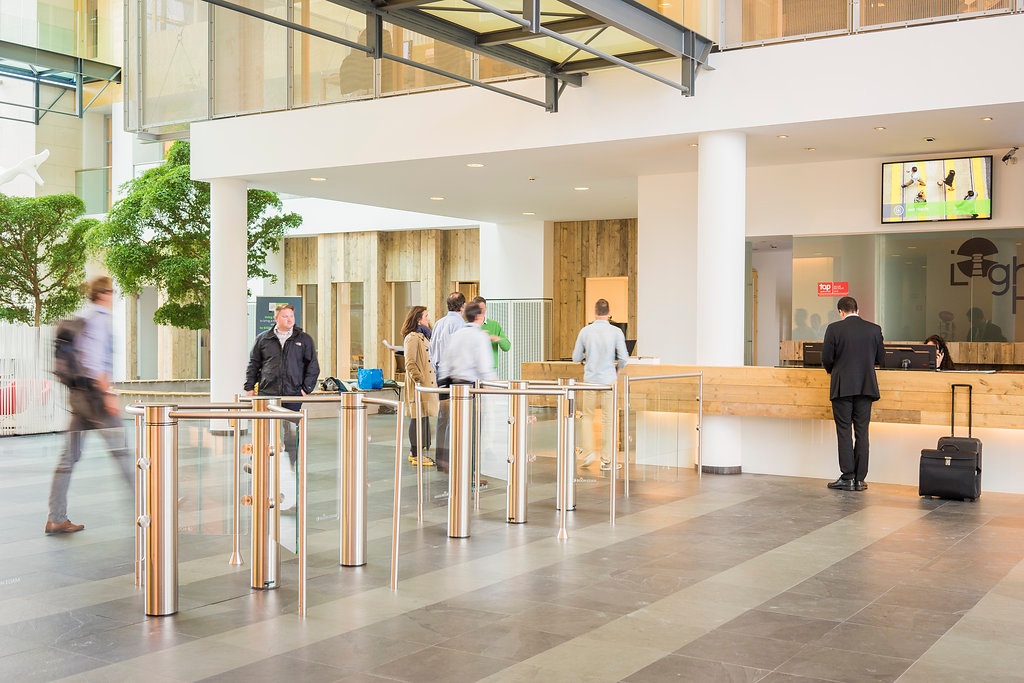
The role of a visitor management system in protecting employees and guests
As soon as you welcome visitors, contractors, interviewees, and others, it’s your duty to protect your people, assets, and buildings.
Now more than ever, there’s a crucial need to reduce and combat issues like the spread of serious infections in the workplace.
Aside from handling such unexpected events, companies need an efficient way to relay health and safety procedures to visitors.
This is part of the everyday process for Greencore, a food manufacturing business that welcomes over 6,000 guests a year.
A visitor management system can quickly and efficiently enforce health and safety regulations—before visitors ever step foot on the premises.
For example, Proxyclick helps Greencore manage visitors effectively while complying with food safety regulations (e.g. identifying contamination risks). In case of an emergency, the software can deliver notifications to everyone on site in a matter of seconds.
Worried you don’t have the right health and safety procedures in place to protect your building or facility? Here are some of the many ways a visitor management solution can step in to save the day.
1. Deliver health screenings via digital questionnaires
Traditional (and inefficient) response procedures in the event of a health emergency, such as requiring visitors to fill out loads of tedious paperwork for health screens, can actually exacerbate a crisis. Such dated methods for handling visitors can lead to long queues, creating unnecessary crowds that may increase the spread of infection.
Enter the questionnaire.
These are often put in place to get an essential snapshot of visitors’ health. As every guest often needs to answer these specific questions, Proxyclick allows host organizations to set up custom screens to prompt visitors to take speedy questionnaires on tablets at the front desk.
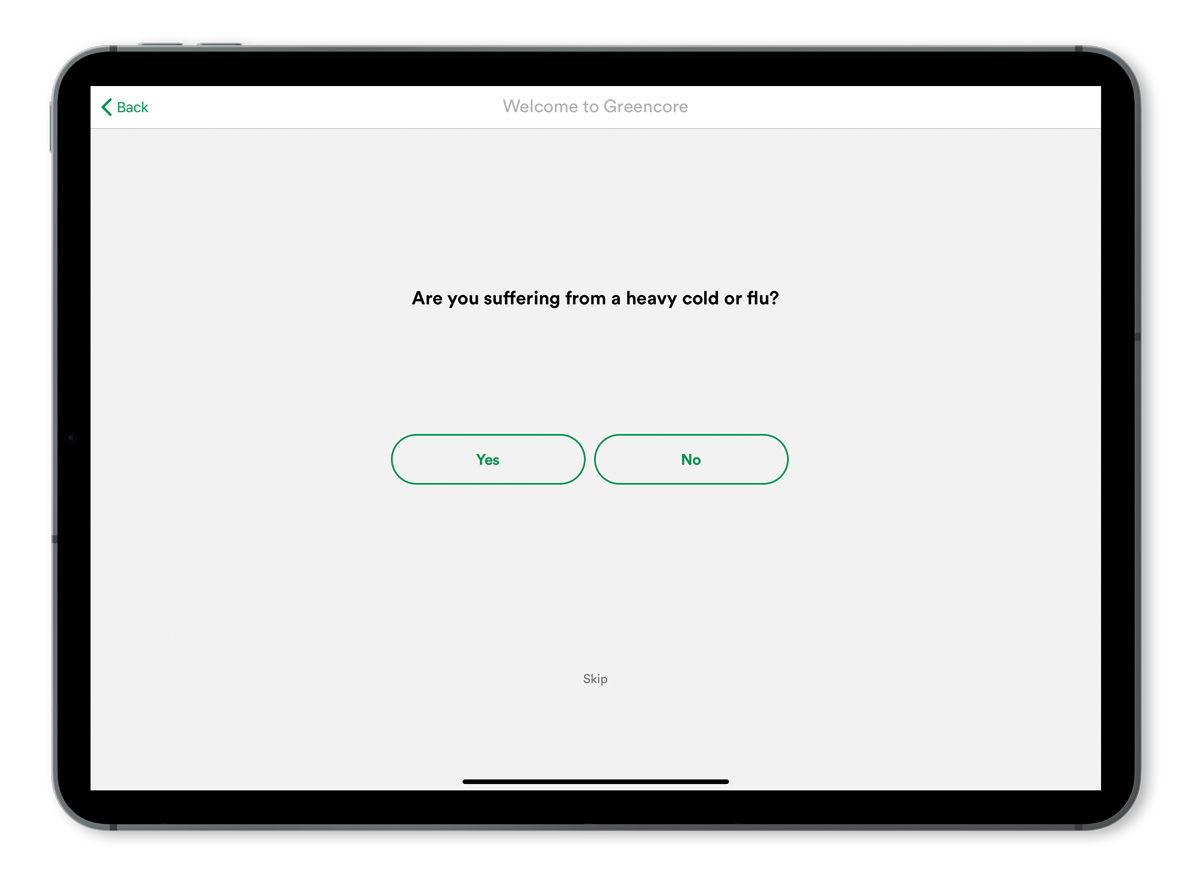
A logical flow of health-related questions can cover:
- Current health conditions, i.e. does the individual have a fever?
- Recent travel history, i.e. has the individual been in a highly affected area (where risk of COVID-19 is high) in the last 14 days?
- Medical history or family history of illness
- Allergies to foods, chemicals, materials, etc.
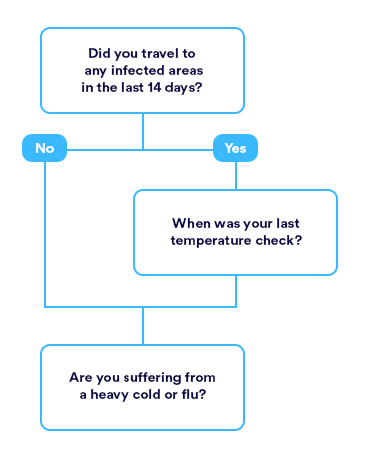
Note: Please be aware of health data privacy regulations when asking these questions.
2. Print badges with key visitor information
Upon arrival, receptionists can visitors’ badges with visitor information displayed, including a photo, access areas (often color-coded to indicate specific parts of the premises), time of visit, and more.
In the case of an emergency situation like the outbreak of an infection, health data like a visitor’s temperature and exact time his or her temperature was taken can be printed and displayed on the badge.
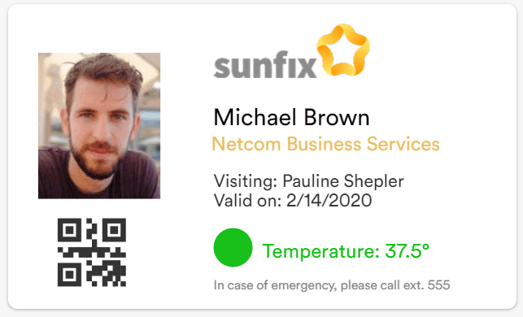
3. Keep data private with a paperless system
Rather than using paper health screens and risking exposure of private information, a cloud-based solution like Proxyclick allows for all visitors’ personal health data to be stored discreetly.
In the event that health information or other personal data needs to later be accessed by a host company, it’s easily retrievable in the system.
4. Send ahead health and safety questionnaires with crucial information before arrival
Even before a guest arrives, hosts can send invitation emails and with all the necessary health and safety rules, agreements or NDAs, precautions, and relevant images the person may need.
.png?width=572&name=image%20(1).png)
5. Respond quickly to emergency situations
Duty of care is essential. In the event that the building is exposed to infection, a fire starts, or a threatening person enters, reception can notify everyone on the premises. Mass emergency text messages can immediately be sent, providing steps for keeping healthy and safe.
Proxyclick also integrates with third-party watchlists to keep unwanted visitors at bay.
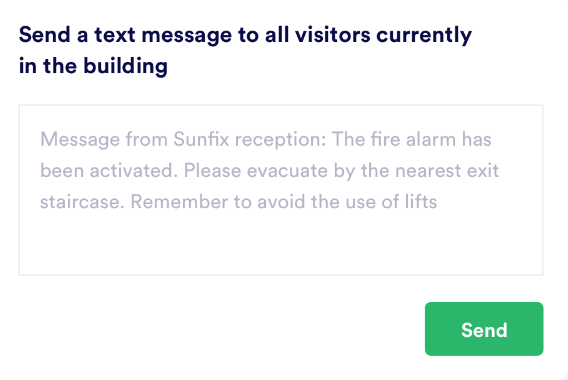
6. Pass health and safety audits and inspections
Passing health and safety inspections on the regular is crucial; the right visitor management system can help you cover all your bases. You can easily prove that you follow all government and industry regulations to ensure visitors remain safe, every day.
In the case of an unexpected crisis like a health epidemic, show that you took all necessary measures (temperature screenings, health questionnaires, mass emergency texts, etc.) to keep those on the premises out of harm.
Crisis averted: Stay informed and safe at all times
The bottom line: abiding by health and safety regulations, and responding quickly and efficiently to out-of-the-blue crises, is absolutely vital.
Whether you’re handling day-to-day duties or responding to an absolute calamity, a digital solution like Proxyclick can act as a customizable, adaptable sidekick.
So what are you waiting for? Keep everyone at your organization informed, healthy, and out of danger, every single day.
To help further strengthen health and safety at your front desk, see our COVID-19 resource center for additional articles, videos, shared customer experiences and more.